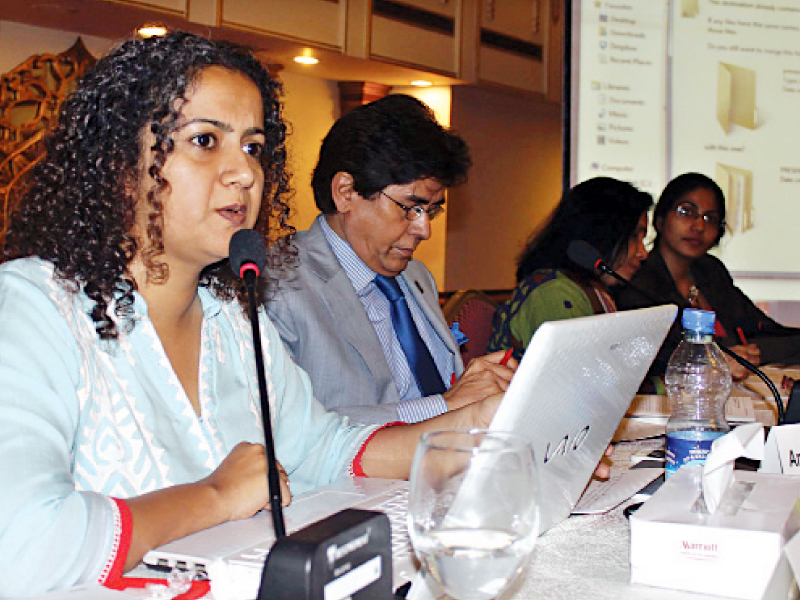
Speakers on Friday underlined the need for a proactive role for women in the political process as a means of economic empowerment.
They were speaking at the concluding session of a two-day regional conference on “Women, work and poverty”, organised by the Social Policy and Development Centre (SPDC).
“Women need to improve their political participation as a means to strengthen their economic participation and empowerment,” they said adding that fewer young women in Pakistan were ‘economically inactive’ and more illiterate women were a part of the labour force now than at the turn of the millennium.
They need to improve their political participation by electing women candidates who can fight for their issues in the legislatures, they said.
Panelists discussed economic opportunities for women and the impact of conflict and climate change on women among other topics in the two days.
In one session, Iffat Ara, a principal economist at the SPDC, shared a research study on the gender dimension of Pakistan’s youth bulge. Using data from the Labour Force Surveys of the Pakistan Bureau of Statistics, Ara said there has been a decrease in the percentage of Pakistani women who were economically inactive - a category which included people who were not looking for jobs or were students.
“Young women are moving towards employment,” she said.
Between 1999 and 2012, the percentage of economically inactive women has fallen to 79 per cent from 90 per cent. During the same 14 years, around three times more illiterate Pakistani women joined the labour force. Employment rate for women with vocational training also increased during this time period, Ara said.
She said there was also a positive correlation between higher level of education and unemployment means that the government should focus to promote labour-intensive economic growth.

Economically independent women are more likely to invest in children’s education and health, said Sunimalee Madurawala, a research officer at the Institute of Policy Studies in Sri Lanka.
Madurawala spoke about the state of gender equality in Sri Lanka, which she said was not satisfactory. She said girls face gender discrimination in some academic fields such as sciences and commerce because of socio-cultural pressures and lack of facilities.
An enabling environment is required to increase Sri Lankan women’s economic participation, she said, for which women will also have “to be vigilant, to vote and elect women candidates” who are ready to work on women issues.
In Sri Lanka’s northern parts, some women election candidates have started to rally for demands of women voters and they have received a good response from the women electorate, said Aaranya Rajasingam, programme officer at the Regional Centre for Strategic Studies in Sri Lanka.
Chairperson of Urban Environment Management Society in Nepal Prem Maharjan said women will have to take leadership positions. “Women have to come into power, the reserved seats are not enough,” Maharjan said.
Panelists also spoke about the rise in violence against women in South Asian societies.
Rajasingam said there has been an increase in reports of violence in southern Sri Lanka, which might be due to violence with impunity in the country’s north where post-civil war, the military has had a carte blanche situation.
Nazish Brohi, a researcher and activist, said Pakistani woman were creating space for themselves in society but there was also an increase and a change in the nature of violence against them.
“The forms of violence against women are changing,” she said. “The violence is becoming more brutal.”
Brohi said it is not certain if this might be the “dying throes of a tall (patriarchal) order” that might lead to a new era for women or if this is a regressive trajectory. She suggested a change in approach.
“Instead of looking at narratives of women as victims or agents, let’s look at these as moments- the moment of victimisation, the moment of agency - and the intersection of these moments,” Brohi said.
Published in The Express Tribune, April 19th, 2014.
COMMENTS (1)
Comments are moderated and generally will be posted if they are on-topic and not abusive.
For more information, please see our Comments FAQ

















Sure the way to empowerment of women is unique in Pakistan i.e. destroy Girl's school. or the researcher thinks Pakistani women are those who hail from Punjab & sindh's s urban centre. KP & Balochistan are irrelevant.